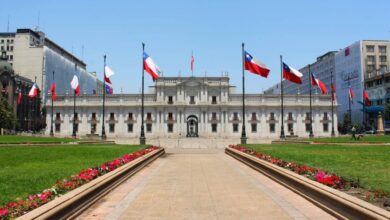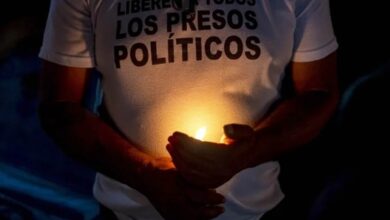Peru: Why would the president dissolve the Congress?
Martín Vizcarra, in a broadcast for all the Peruvian people, gave an ultimatum to Congress to process an anti-corruption law

According to the German chain, Deustche Welle, on September 17 the president of Peru, Martin Vizcarra, gave a message on television to all his people warning that if the plenary session of Congress does not process the anti-corruption law, he would dissolve it.
Leer en español: Perú: ¿Por qué el presidente disolvería el Congreso?
The controversy goes back to the month of July when Vizcarra announced the establishment of a new law that attacks one of the most common scourges in Latin America: corruption. As stated by DW, this project consists of 4 points:
- "Prohibition of the immediate reelection of congressmen,
- Control of party finances,
- Return to the bicamerality
- Changes in the system to appoint judges and prosecutors ".
However, according to the BBC, the problem with this law procedure is that at this moment the opposition party, Fuerza Popular, which is led by Alberto Fujimori’s daughter, Keiko Fujimori, dominates the congress (unicameral).
Apparently, the FP is leading a "turtle plan" to postpone the debates corresponding to the law in question for next year, although Vizcarra sees this issue of utmost importance.
#Ahora El Perú no está para golpes de estado!!! pic.twitter.com/M73nhScamG
— Keiko Fujimori (@KeikoFujimori) 19 de septiembre de 2018
After 40 days of results, DW informed that "the proposed points did not solve the crisis, she [Keiko Fujimori] accused Vizcarra of being a populist and, although not explicitly rejecting the referendum, she calmly took things with the presumed purpose of preventing the consultation to be done this year, as the Government wants”.
This clash of powers occurred after the Inca country uncovered a corruption scandal in the judicial branch, where the courts granted millionaire favor to entrepreneurs. Now, why can Vizcarra order the dissolution of the congress?
"Fulfilling the Political Constitution that I swore to respect and enforce, and, as witnesses to all Peruvians who demand urgent changes, we will pose a question of confidence to the Congress to approve the bills on the axes of Government policies".
Cumpliendo la Constitución Política que juré respetar y hacer respetar, y, poniendo como testigos a todos los peruanos que reclaman cambios urgentes, plantearemos una cuestión de confianza al Congreso para aprobar los proyectos de ley sobre los ejes de políticas de Gobierno.
— Martín Vizcarra (@MartinVizcarraC) 17 de septiembre de 2018
"The Question of Confidence"
The Peruvian constitution foresees a figure called "The Question of Confidence", which gives power to the incumbent president to dissolve the Congress under specific conditions. According to the BBC, the first indispensable condition is the rejection of a law or fundamental request of the executive branch in the same presidential period.
This specific demand already occurred in the government of Kuczynski, because the plenary session of Congress rejected a law that was vital for him. The problem was so much that the aforementioned president had to leave power due to corruption scandals, for which President Vizcarra took office.
Also read: This is what you need to know about the referendum that was announced by Martín Vizcarra
The second indispensable condition contemplated in the constitution is the double negative of confidence of the Senate towards the executive power. As the BBC points out, this condition would arise if the full Congress fails to process and endorses the anti-corruption law, a situation that could lead to a clash of powers.
The Peruvian constitution considers this double vote of confidence as necessary to maintain stability within the country, because if orders and organic laws (fundamental) are not approved or put in process can be for two reasons: the negligence of the executive or power legislative, as pointed out by the Peruvian Constitution in its article 132.
This is how a guarantee pledge is made to these two institutions, first the resignation of ministers is given and in a following scenario the dissolution of the Congress.
La cuestión de confianza NO es para la reforma judicial.
Es para el cumplimiento del articulo 157 de la Constitución. Nada más. El Congreso hoy se niega.
Si no se remueve a todo el CNM no hay ni la mas remota posibilidad de reforma, que sera siempre posterior y por etapas. https://t.co/vLuPuayBKH— Rosa María Palacios (@rmapalacios) 13 de julio de 2018
LatinAmerican Post | Miguel Díaz
Translated from “Perú: ¿Por qué el presidente disolvería el Congreso?”
Listen this article





